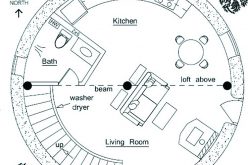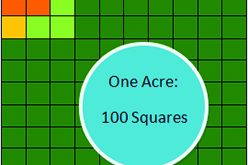Greening the Grill
Now that warmer weather has arrived, humanity has once again taken up the ancient sports of grilling and picnicking. Yet this practice need not be reserved for Memorial Day and special occasions. Just as we can use a bicycle for transportation instead of exclusively for recreation, cooking outdoors can sustain us–not only entertain us.
The U.S. Department of Energy estimates that cooking consumes only 4.5 percent of household energy, so it’s just a tiny part of the problem. It’s also a low-hanging fruit compared to home retrofits. The most efficient (and pricey) indoor stove is an induction stove, followed by gas stoves with an electric ignition, and finally electric stoves. Regardless of which model you’re using, the simple act of covering a pot of water will bring it to a boil in half the time. Crock pots use 0.7 kilowatt-hours of energy over seven hours compared to an electric oven that uses two kWh in just one hour. Cooking outdoors keeps our kitchens cooler in summer, conserving energy used to cool the house.
Cooking outside isn’t necessarily sustainable; the method of cooking is what matters if you’re trying to “grill green.” Using propane is cleaner and more energy efficient than using charcoal and has a much smaller environmental footprint, according to the Natural Resources Defense Council. You can also grill with wood using a pellet grill, which is more efficient than charcoal. The wood pellets come from waste wood and contain no additives.
Or, you might just let the sun do the cooking for you! Solar cookers are becoming increasingly popular. There are three types: box cookers, parabolic dishes, and panel cookers. According to Solar Cookers International, box cookers are the most common worldwide. These can be anything from a pizza box to a sturdy industry-made box with a transparent lid that fits multiple pots and cooks food in medium to high temperatures. Parabolic cookers are small or sometimes huge reflective dishes that concentrate the sunlight onto a single point to achieve high temperatures. Panel cookers incorporate elements of both box and parabolic cookers. They look like something you would use on a mission to Mars, with reflective panels that fold.
Learn how to build your own pizza box oven at www.education.com/worksheet/article/pizza-box-solar-oven/
These ovens can be easily constructed, so they’re often used in refugee camps or in villages to alleviate problems such as deforestation, elminiating the possibility of rape while women travel long distances to collect firewood, and polluted indoor air from dirty fuels. This is wonderful, but it doesn’t mean the sun should only be used by the poorest among us while those more fortunate opt for fuel sources that damage the planet and contribute to conditions that perpetuate poverty. Outdoor cooking, if done thoughtfully, is a small way we can celebrate our common human traditions, enjoy our summer vacations while reducing emissions and standing in solidarity with those who are struggling to survive.
Ripples is an emerging online educational center inspired by a holistic approach to making a difference. Follow our journey to live sustainably and make ripples with our lifestyle at: www.RipplesBlog.org.









